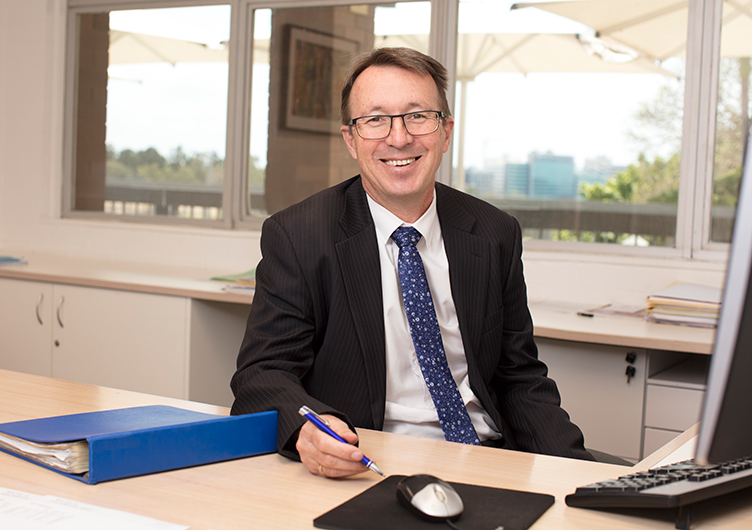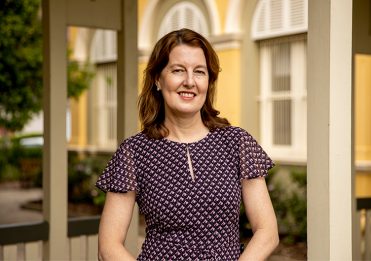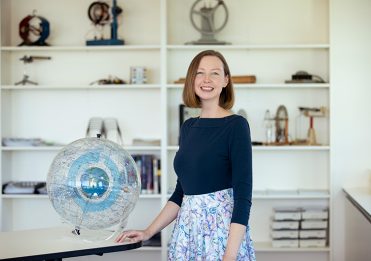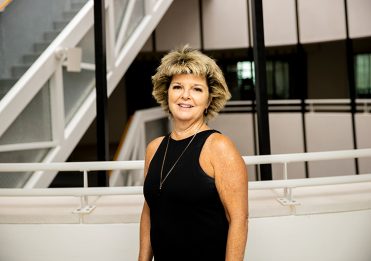My first job was at a bank. I worked there while I was studying Accounting, but after a few years, realised it wasn’t the career for me. I did however enjoy training other employees, and this sparked my love of helping people to develop their skills.
At the same time, I rediscovered my love for science and began re-reading my school textbooks and science literature. In an effort to combine these two interests, I decided to study Science and Education at the Queensland University of Technology.
After graduating, I commenced work at the Queensland Department of Education. Unlike most graduate teachers, I did not complete rural service due to my involvement in short-track ice speed skating. As I was regularly competing in state and national competitions, I needed to be near training facilities here in Brisbane.
Although a niche sport in sunny Queensland, and indeed Australia, the competitor in me enjoyed the challenge of a unique set of skills in a sport that, literately and figuratively, required you to be on the edge. Although my racing days are well past me, I still find enjoyment in lacing up skates and being on the ice.
I held positions in the Department of Education for nine years, including Head of Physics and Year Level Coordinator. During that time, I worked closely with colleagues to establish programs that evaluated students’ secondary school experiences—academic and social—and if, and how, they differed based on gender.
This work ultimately led to a position at Moreton Bay College (MBC). During my 20 years at MBC I was fortunate enough to undertake a variety of positions including Head of House and Head of Secondary Teaching and Learning.
While at MBC, I completed a Master’s of Education, focussing on the different conceptions of learning held by students and teachers and how such conceptions impact teaching and learning experiences. Looking to apply this knowledge to my career, along with my experiences in pastoral and academic care, I was drawn to the position of Dean of Studies and Learning Analytics at Girls Grammar.
This is my fourth year at the School. My job involves many numbers—including predicting and analysing standardised testing results and what they mean for girls. But, numbers are such a small part of our story, and despite the School’s consistently strong academic results, a Girls Grammar education is much more than the ‘numbers’ we produce. We are a community that challenges our girls’ social and emotional development.
In everything I do, I am conscious there is a person at the end of those numbers. Results alone, without considering a person’s life experience, do not hold much meaning. We work with girls, collectively and individually, to help them realise their potential and overcome challenges. It is undoubtedly a difficult task for young students to see beyond their immediate horizon. Therefore, it is our responsibility to equip them with the skills we know they will need to navigate their lives beyond schooling.
Teachers often talk about moments of joy—the moment a student grasps a concept or learns something for the first time. My job satisfaction comes from knowing we are preparing students for their whole lives, to achieve things they don’t yet know exist.
When I reflect on my life choices, knowing they’ve shaped me into the person I am today, I truly believe each experience has been worthwhile. Each has helped me better understand people and how to be more responsive, both skills relevant to what I do in my role at Girls Grammar.
Just like my early career, life after school does not follow a straight and narrow path, nor should it. It is important our girls understand that sometimes you need to try new things that you’d not anticipate, embrace challenge even if it might seem daunting and, at times, push to the edge of what you think is possible. There will always be ups and downs, but with resilience, an open-mind and an adventurous spirit I am confident our girls will thrive in their lives after Girls Grammar.





